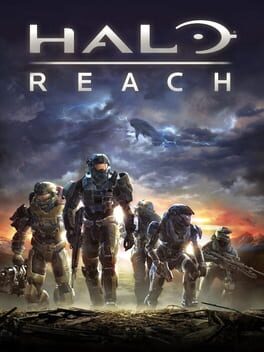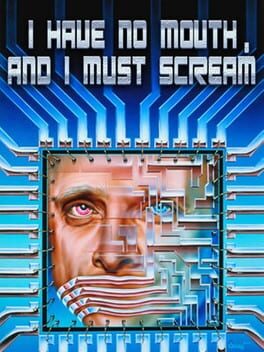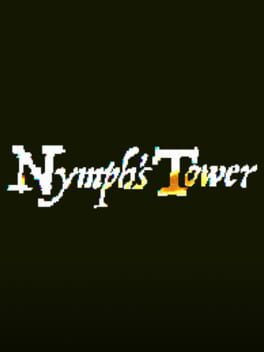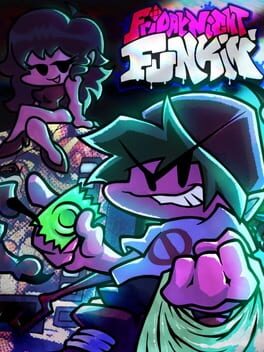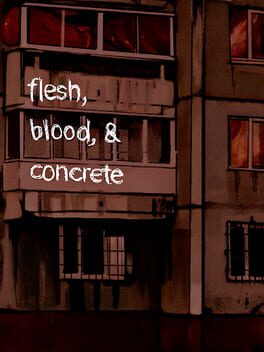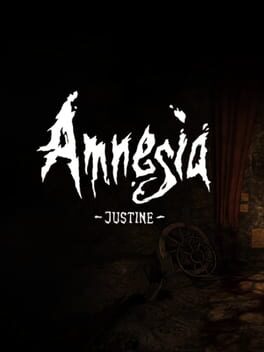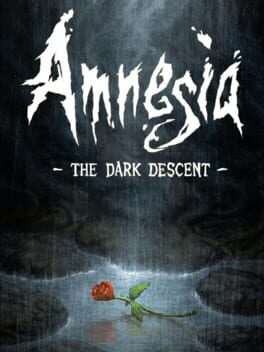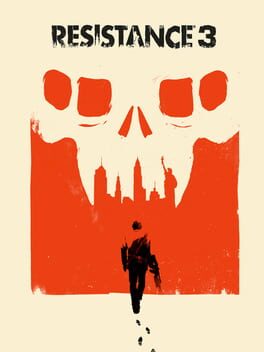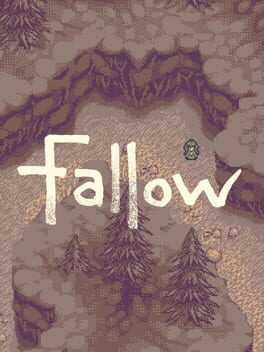Comfort
101 Reviews liked by Comfort
Halo: Reach
2010
You couldn't be asking a worst person about anything regarding this series' lore. However, despite my general disconnect with its specifics in its venture to provide a fulfilling narrative from questions left by the originals' history-making, I like how its preexisting conditions damn it into a FPS rendition of operatic tragedy; A Star Wars Prequel for the Halo Universe, even if less potently felt. Rogue One, but maintaining a better sense of pulse in its representation of the happening.
Fighting for a lost cause, death from the first frame and only directing oneself to disaster in the insignificance of our role in the battle of Reach. And Bungie does find a way of transmitting this impotence through our interaction with the system. We taste the pleasure of small victories in our advancement in the plot, yet are always reminded, either enviromentally or through exposition, of the futility of any achievements in the face of a menace this unstoppable.
The final mission, in which our goal is as vague yet concrete as "surviving", is a particularly lucid piece of design as it encapsulates the struggle one endures navigating through this scenarios. The best we can do is fight to last another minute. Not succeed, but remain; to build a path for the next generations to persist. That hope, as constructed in its precedents as its despair, what grants its tone of a nuance generating a stronger engagement with the incidents on-screen, as much as individual characters are defined in broad strokes.
More rewarding than what I'd prefer from a proposal of its qualities, while still not meaning it fully accomplishes the heights of its ambitious drama.
Fighting for a lost cause, death from the first frame and only directing oneself to disaster in the insignificance of our role in the battle of Reach. And Bungie does find a way of transmitting this impotence through our interaction with the system. We taste the pleasure of small victories in our advancement in the plot, yet are always reminded, either enviromentally or through exposition, of the futility of any achievements in the face of a menace this unstoppable.
The final mission, in which our goal is as vague yet concrete as "surviving", is a particularly lucid piece of design as it encapsulates the struggle one endures navigating through this scenarios. The best we can do is fight to last another minute. Not succeed, but remain; to build a path for the next generations to persist. That hope, as constructed in its precedents as its despair, what grants its tone of a nuance generating a stronger engagement with the incidents on-screen, as much as individual characters are defined in broad strokes.
More rewarding than what I'd prefer from a proposal of its qualities, while still not meaning it fully accomplishes the heights of its ambitious drama.
Wordle
2021
Nymph's Tower
2021
Gnosia
2019
los primeros 80-100 loops de gnosia son una experiencia sin igual. reconfiguran las bases construidas por juegos como ace attorney o danganronpa para orientarlo en el contexto mismo que recoge virtue's last reward, e incluso de death games previos de Uchikoshi y co. para apelar constantemente a preocupaciones habituales del género que tan fácilmente dialogan con el sci-fi y el transhumanismo. es interesante, se deja leer con gusto, y el formato crea una constante sensación de deriva en la que descubrimos cómo juega cada une de les personajes a la vez que la asignación aleatoria de roles obliga a siempre estar alerta y relacionarte de formas dinámicas con el resto del elenco
lastimosamente, la teoría acaba cayendo por su propio peso. el sistema de stats que en un inicio otorga opciones para afrontar los encuentros pronto se revela como el factor que los trivializa. llegado un punto ni es necesario jugar, el propio loop te reclama que por favor termines ya con la historia y no lo dejes, que ya has avanzado bastante así que aquí vienen una seguidilla de regalos, de anclajes arbitrarios donde los personajes uno tras otro se encadenan (fruto del event search) para contarte a las prisas qué pasa con ellxs, qué necesitas saber para desbloquear el true ending. esta derrota de su propia capacidad para mantener el interés en lo mecánico para volverse en una urgencia por apurar variables a ver si con esta combinación no nos extendemos otros 10 loops de nada son lo que para mí acabó manchando el trato
no es realista esperar un cast de tantos personajes donde todes aporten lo mismo o estén siquiera desarrollados, y aunque autores como Kodaka pecan aún más fuertemente de esto, Uchikoshi al menos sabe que debe centrarse individualmente en estos si quiere llevar sus arcos dramáticos hasta el final. Gnosia acaba cayendo en el mismo sinsentido de tener a cinco personajes cruciales para su propuesta central, y luego un montón de secundarios a modo de excusas para elevar la sensación de conflictos secundarios insertos en el tronco. pero resulta que difícilmente lo están, y si bien ninguno de estos acaba siendo realmente un cascarón vacío, como buena obra sci-fi hambrienta por demostrar que es capaz de tratar todos los temas existenciales posibles, acaba sintiéndose en la necesidad de que cada dupla de personajes sea el símbolo de un tema, que ni siquiera busca proponer ideas nuevas sino que ya pareciesen exigidos como mínimos del género, asuntos que tienen que siempre estar ahí. si le sumamos un final que en lo personal ha parecido bastante insatisfactorio y una serie de directrices que mueven a los personajes pecando de solo moverse por el parafraseo o la escena pretendidamente icónica, como si aquello fuese suficiente. me quedan a deber, y la sensación final es de que el título no supo medir bien cuánto realmente quería que te comprometieras con su propuesta
como ejercicio de trasladar los hombres lobo a un entorno numérico encerrado en las paredes de una novela visual resulta brillante, tanto es así que para su correcto funcionamiento necesita sacrificar lo que con tanto ahínco busca esbozar como su sustancia (no vaya a ser que pensemos que es otro 'simple' juego sus) al grado en que reduce mucho a mero envoltorio
SQ did nothing wrong tho
lastimosamente, la teoría acaba cayendo por su propio peso. el sistema de stats que en un inicio otorga opciones para afrontar los encuentros pronto se revela como el factor que los trivializa. llegado un punto ni es necesario jugar, el propio loop te reclama que por favor termines ya con la historia y no lo dejes, que ya has avanzado bastante así que aquí vienen una seguidilla de regalos, de anclajes arbitrarios donde los personajes uno tras otro se encadenan (fruto del event search) para contarte a las prisas qué pasa con ellxs, qué necesitas saber para desbloquear el true ending. esta derrota de su propia capacidad para mantener el interés en lo mecánico para volverse en una urgencia por apurar variables a ver si con esta combinación no nos extendemos otros 10 loops de nada son lo que para mí acabó manchando el trato
no es realista esperar un cast de tantos personajes donde todes aporten lo mismo o estén siquiera desarrollados, y aunque autores como Kodaka pecan aún más fuertemente de esto, Uchikoshi al menos sabe que debe centrarse individualmente en estos si quiere llevar sus arcos dramáticos hasta el final. Gnosia acaba cayendo en el mismo sinsentido de tener a cinco personajes cruciales para su propuesta central, y luego un montón de secundarios a modo de excusas para elevar la sensación de conflictos secundarios insertos en el tronco. pero resulta que difícilmente lo están, y si bien ninguno de estos acaba siendo realmente un cascarón vacío, como buena obra sci-fi hambrienta por demostrar que es capaz de tratar todos los temas existenciales posibles, acaba sintiéndose en la necesidad de que cada dupla de personajes sea el símbolo de un tema, que ni siquiera busca proponer ideas nuevas sino que ya pareciesen exigidos como mínimos del género, asuntos que tienen que siempre estar ahí. si le sumamos un final que en lo personal ha parecido bastante insatisfactorio y una serie de directrices que mueven a los personajes pecando de solo moverse por el parafraseo o la escena pretendidamente icónica, como si aquello fuese suficiente. me quedan a deber, y la sensación final es de que el título no supo medir bien cuánto realmente quería que te comprometieras con su propuesta
como ejercicio de trasladar los hombres lobo a un entorno numérico encerrado en las paredes de una novela visual resulta brillante, tanto es así que para su correcto funcionamiento necesita sacrificar lo que con tanto ahínco busca esbozar como su sustancia (no vaya a ser que pensemos que es otro 'simple' juego sus) al grado en que reduce mucho a mero envoltorio
SQ did nothing wrong tho
Friday Night Funkin'
2020
es bien difícil hablar de FNF porque el factor cringe parece pesar mucho más que la posibilidad de plática sobre cualquier otro tema contingente al juego. entre que predomina la idea de valor-producto de cara a cómo debe presentarte, durar y jugarse un título rítmico, junto al hecho de que efectivamente FNF no deja de ser más que un esboce de un concepto, de golpe se trivializa el interés genuino que su propuesta ha despertado y que ya resulta inmediatamente reconocible en cualquier comunidad de internet. FNF es cringe, sí, pero seguir cayendo en la idea ya a estas alturas absurda de que lo popular no es sino la expresión inferior de otro 'verdadero' exponente de un género, en fin
para muches esto no es nuevo y son cosas que venimos viendo desde el PIU (lindas épocas de tener la alfombrita chota para bailar el DDR en una ps1 pirata), así que el tener la misma idea en formato breve y discutiblemente peor responsivo puede llegar a ser un lastre, pero que no nos quiten la lupa sobre lo que en verdad merece revisión: a FNF le importa poco cuán de bueno es como juego rítmico, sino ser el lienzo de un estilo
aquello que no consigue acaba estando tan en segundo plano dado que lo inmediato es enérgico, tanto lo que entra por la vista (la estética es inmediatamente reconocible y muy fácil de trasladar a cualquier personaje, pudiendo re-versionarse infinitamente) como por los oídos (la soundfont es transformativa e invita a convertir cualquier otra canción en su versión FNF), sumado a que la mera propuesta escénica, el ir y venir entre ambos lados bajo la cosmética de una batalla de rap que tanto simula como rememora a una boss battle, en fin, es puro ideal clásico de videojuego, cargado de una sensación de competencia que permite miles de configuraciones potenciales
lo dicho: FNF es un lienzo, uno donde multitud de artistas pintan con sus diversos mods, muchos bastante mejores que el trabajo original, que se trasluce en dinámicas de memes para compartir en redes (la mayoría muy malos, hay que decir). es espíritu newgrounds en un sentido más bien bondadoso, lo que a mi modo de ver, es una pequeña probada de lo bonito que puede llegar a ser internet en un momento donde ya ninguno de los sitios clásicos ha logrado dispersar la duda entre lo sagrado y lo profano
para muches esto no es nuevo y son cosas que venimos viendo desde el PIU (lindas épocas de tener la alfombrita chota para bailar el DDR en una ps1 pirata), así que el tener la misma idea en formato breve y discutiblemente peor responsivo puede llegar a ser un lastre, pero que no nos quiten la lupa sobre lo que en verdad merece revisión: a FNF le importa poco cuán de bueno es como juego rítmico, sino ser el lienzo de un estilo
aquello que no consigue acaba estando tan en segundo plano dado que lo inmediato es enérgico, tanto lo que entra por la vista (la estética es inmediatamente reconocible y muy fácil de trasladar a cualquier personaje, pudiendo re-versionarse infinitamente) como por los oídos (la soundfont es transformativa e invita a convertir cualquier otra canción en su versión FNF), sumado a que la mera propuesta escénica, el ir y venir entre ambos lados bajo la cosmética de una batalla de rap que tanto simula como rememora a una boss battle, en fin, es puro ideal clásico de videojuego, cargado de una sensación de competencia que permite miles de configuraciones potenciales
lo dicho: FNF es un lienzo, uno donde multitud de artistas pintan con sus diversos mods, muchos bastante mejores que el trabajo original, que se trasluce en dinámicas de memes para compartir en redes (la mayoría muy malos, hay que decir). es espíritu newgrounds en un sentido más bien bondadoso, lo que a mi modo de ver, es una pequeña probada de lo bonito que puede llegar a ser internet en un momento donde ya ninguno de los sitios clásicos ha logrado dispersar la duda entre lo sagrado y lo profano
mournful meditation on suicidal ideation, collectivism, and decay. smartly juxtaposes brutalist architecture against warm flesh - the difference between rigid structure and the overflowing and organic. it's a short experience at around an hour or so but holds up as a specific tragedy that a lot of people could easily see themselves in; plays with doomer mentality and nostalgia in clever ways. it's impossible to return to our most innocent selves - the knowledge of life's malaise stalks us no matter where we go.
Archangel: Nemesis
2021
writing on the 2 of 4 eps that are out so far: i like this a whole lot! direction is just excellent throughout, often frightening and depressing but uniquely sly at times too. a v specific kind of ex-cult christian (or just christian, you COULD take the church in this as a christian church if you wanted) menhera in this; the way religious indoctrination psychologically constricts children, whose trauma then gets internally contextualized through the mythology. also the early 2000s visual influences--drawing from more than just games obviously but love the lines that can be drawn btwn the 3d in this and stuff like sengoku turb or okage or stretch panic--just makes me feel like this is a spiritual successor to hypnospace outlaw in a certain kind of sense that im not gonna elaborate on. cannot wait to see how the next 2 episodes are handled.
Amnesia: Justine
2011
I've had this game sitting on my library for around 4-5 years and I only had the urge to play it some days ago (thank you Humble Bundle).
I liked it, maybe it's the design of the castle or the ambience itself, but I enjoyed it most of the time. It's not scary and the game tries too hard to make you feel like you are in greater danger than you actually are. Enemies are stupid and easy to pass by so I didn't find the stealth sequences as annoying as the games that followed this one, like Outlast.
Anyway, cool game, the castle was cool. Looking forward to A Machine for Pigs, since I like both machines and pigs.
I liked it, maybe it's the design of the castle or the ambience itself, but I enjoyed it most of the time. It's not scary and the game tries too hard to make you feel like you are in greater danger than you actually are. Enemies are stupid and easy to pass by so I didn't find the stealth sequences as annoying as the games that followed this one, like Outlast.
Anyway, cool game, the castle was cool. Looking forward to A Machine for Pigs, since I like both machines and pigs.
Duvet
2021
DO NOT DOWNLOAD THE HIT BACKLOGGD CORE TITLE DUVET FOR FREE AT
https://jacarandastudio.itch.io/duvet
WORST MISTAKE OF MY LIFE
https://jacarandastudio.itch.io/duvet
WORST MISTAKE OF MY LIFE
This review contains spoilers
Gust's most polished game of all time. Quite possibly the best soundtrack of the HD era of gaming. Genuine humor and pathos with an endearing cast. An explicit lesbian couple whose love is celebrated by the narrative.
I don't think BR Tie is perfect but or even necessarily that novel (outside of Yuuki and Rena's relationship, which is wonderful to see in a JRPG), but I'm giving it a score this high anyway because of what it represents to me. It makes me feel rewarded for supporting Gust for the past 16 years (a little more than half my life), ever since Atelier Iris was localized. I'm really glad they put so much love and care into this. Highly recommended for fans of Tsuchiya's games as well; he was the development producer and came up with the story, so it shares many thematic elements and storytelling devices with the EXA_PICO series.
Strong recommendation to watch the Blue Reflection Ray before playing. Weaker recommendation to play Ar Nosurge beforehand (it's probably the most similar game Gust has made, though maybe not in ways you're expecting). The first BR game is pretty skippable honestly.
I don't think BR Tie is perfect but or even necessarily that novel (outside of Yuuki and Rena's relationship, which is wonderful to see in a JRPG), but I'm giving it a score this high anyway because of what it represents to me. It makes me feel rewarded for supporting Gust for the past 16 years (a little more than half my life), ever since Atelier Iris was localized. I'm really glad they put so much love and care into this. Highly recommended for fans of Tsuchiya's games as well; he was the development producer and came up with the story, so it shares many thematic elements and storytelling devices with the EXA_PICO series.
Strong recommendation to watch the Blue Reflection Ray before playing. Weaker recommendation to play Ar Nosurge beforehand (it's probably the most similar game Gust has made, though maybe not in ways you're expecting). The first BR game is pretty skippable honestly.
Resistance 3
2011
Si el primer juego quería ser como Halo y el segundo quería ser un juego de procesos militares a lo Call of Duty (pero con aliens), el tercer Resistance intenta simular los FPS post-apocalípticos tipo Metro y Homefront, que estaban de moda entonces.
En sí mismo, el juego se juega bien, y tiene una selección de armas que no se siente tan diversa como antes pero tampoco se siente incoherente. También tiene una selección decente de enemigos, que están ahora muy jerarquizados, y un sistema de mejoras que es más suave de lo que creí que sería. También hay referencias raras a eras más antiguas de diseño FPS, como prescindir de la regeneración de salud (y gracias a Dios por ello). En ese aspecto, así como por el peso de la narrativa, este juego puede recordarte más a Half-Life 2 que a otra cosa.
Habiendo dicho eso, sigue siendo soso y aburrido. Ahora no tenemos brutotes militares que lanzan órdenes entre ellos, pero un cuento completo de excepcionalismo gringo en el que los aliens actúan de metáfora de invasores extranjeros y los valores más reconocidos de los USA son exaltados, desde la susodicha Resistencia hasta el fanatismo religioso. No podemos olvidarnos del capítulo por la prisión, que nos sirve para reconocer la propensión natural del ser humano hacia el mal y alabar los lazos familiares tradicionales.
Así que, en conclusión, ha sido interesante ver a Insomniac emular todos los tópicos del género durante tantos años. El arte corporativo debe pagar muchas facturas, me figuro.
-----------------------------------------------------------
If the first game wanted to be like Halo and the second wanted to be a military procedural a la Call of Duty (but with aliens), the third Resistance aims to simulate post-apocaliptic FPSs like Metro and Homefront, which were all the rage at the moment.
In and on itself, the game plays fine, and has a decent variety of weapons that doesn't feel as diverse as previous titles but also doesn't feel disjointed. It also has a pretty decent selection of enemies, which are now heavily stratified, and an upgrading system that's smoother than I thought it'd be. There are also weird callbacks to earlier eras of FPS design, like the omission of regenerating health (and thank God for it). In that regard, as well as for the weight of its narrative, this game might remind you of Half-Life 2 more than anything else.
That being said, it's still pretty dull and boring. Now we don't have military gruffs spouting command lines at each other, but a full-blown tale of American exceptionalism in which the aliens are coding for foreign invaders and the highest virtues of the US are exalted, from the titular Resistance to religious zealots. Also can't forget the prison episode, in which we reaffirm humanity's natural propensity towards evil while exalting the bonds of traditional family values.
So in conclusion, it's been a trip watching Insomniac play into all the tropes of the genre for so many years. Corporate art sure does pay the bills, I reckon.
En sí mismo, el juego se juega bien, y tiene una selección de armas que no se siente tan diversa como antes pero tampoco se siente incoherente. También tiene una selección decente de enemigos, que están ahora muy jerarquizados, y un sistema de mejoras que es más suave de lo que creí que sería. También hay referencias raras a eras más antiguas de diseño FPS, como prescindir de la regeneración de salud (y gracias a Dios por ello). En ese aspecto, así como por el peso de la narrativa, este juego puede recordarte más a Half-Life 2 que a otra cosa.
Habiendo dicho eso, sigue siendo soso y aburrido. Ahora no tenemos brutotes militares que lanzan órdenes entre ellos, pero un cuento completo de excepcionalismo gringo en el que los aliens actúan de metáfora de invasores extranjeros y los valores más reconocidos de los USA son exaltados, desde la susodicha Resistencia hasta el fanatismo religioso. No podemos olvidarnos del capítulo por la prisión, que nos sirve para reconocer la propensión natural del ser humano hacia el mal y alabar los lazos familiares tradicionales.
Así que, en conclusión, ha sido interesante ver a Insomniac emular todos los tópicos del género durante tantos años. El arte corporativo debe pagar muchas facturas, me figuro.
-----------------------------------------------------------
If the first game wanted to be like Halo and the second wanted to be a military procedural a la Call of Duty (but with aliens), the third Resistance aims to simulate post-apocaliptic FPSs like Metro and Homefront, which were all the rage at the moment.
In and on itself, the game plays fine, and has a decent variety of weapons that doesn't feel as diverse as previous titles but also doesn't feel disjointed. It also has a pretty decent selection of enemies, which are now heavily stratified, and an upgrading system that's smoother than I thought it'd be. There are also weird callbacks to earlier eras of FPS design, like the omission of regenerating health (and thank God for it). In that regard, as well as for the weight of its narrative, this game might remind you of Half-Life 2 more than anything else.
That being said, it's still pretty dull and boring. Now we don't have military gruffs spouting command lines at each other, but a full-blown tale of American exceptionalism in which the aliens are coding for foreign invaders and the highest virtues of the US are exalted, from the titular Resistance to religious zealots. Also can't forget the prison episode, in which we reaffirm humanity's natural propensity towards evil while exalting the bonds of traditional family values.
So in conclusion, it's been a trip watching Insomniac play into all the tropes of the genre for so many years. Corporate art sure does pay the bills, I reckon.
